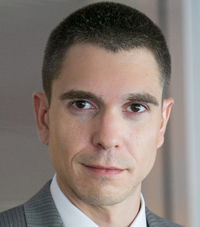Several years ago, I had drinks with Richard (Dick) Clarke. We were in a far-flung country, and I was at the time working for his security consulting company. There’s something about drinking with another person that gives one insight and perspective; it strips away status and seniority and leaves people talking as equals, at least while the booze is flowing. I recall Dick with a martini, his neck tie loosened, and room full of proven and budding security experts. Dick “held court,” but it was curious how he was able to at once engage his colleagues in debate and banter while somehow still seeming alone, even in a room full of people.
My colleague and fellow Security Debrief contributor Rich Cooper recently posted a piece, 9/11 Conspiracy Theories and the End of Richard Clarke, discussing comments Clarke made in an upcoming documentary. In it, Clarke suggests former CIA Director George Tenet and others at the CIA led a “massive cover-up” to keep from the White House and FBI intelligence that could have stopped the 9/11 attacks. Cooper goes on to say:
“For a man very practiced in throwing verbal hand grenades when the evidence is on his side, (and even when that evidence is debatable), throwing a charge like this without any facts speaks to how cavalier he’s been, or rather, become.”
This then, for Rich Cooper anyway, is the end of Dick Clarke. Or is it? Should it be?
No man is an island, but perhaps Clarke would like to be. He was alone before 9/11 when his warnings about al Qaeda were not taken seriously enough. He was alone before the 9/11 Commission, saying “your government failed you” and apologizing on its behalf. With his statements about a 9/11 cover-up, he will likely be alone again. But maybe that’s how he likes it.
Not having heard Clarke’s statements on the forthcoming documentary, I cannot speak to the validity or falsehood of his claims. Further, there is a great deal of information and experience to which Clarke has access that I do not. Certainly proof of statements is critical and necessary, but I respectfully disagree with Cooper that such unproven statements constitute the end of a distinguished career, or at least, the end of the days of informed statements.
Cooper notes that Clarke has more than once introduced himself as Richard F-ing Clarke. While that kind of audacity rubs people the wrong way, it was the same kind of audacity that fueled his statements before the 9/11 Commission, which many people applauded. Interestingly, that audacity is seldom present in less formal situations, at least from my experience.
At the end of the day, Clarke is just a guy with an opinion. Maybe he is misinformed, or perhaps, as Cooper said, “he’s anxious to be on the media circuit in the pre-9/11 anniversary days.” But regardless, the successes and achievements Clarke collected through three administrations and several years in the private sector earns him a bit of latitude.
When someone falls asleep on the couch beside you, martini glass balanced in his hand, and the din of voices hushes to a whisper so as not to rouse him, you become extremely aware of in just how high esteem he is held by colleagues. Maybe Dick is dreaming or maybe there’s a nightmare out there to which I am not privy. But in any case, I’ll keep my voice down out of respect. He may be smug, but he is after all Richard F-ing Clarke.


